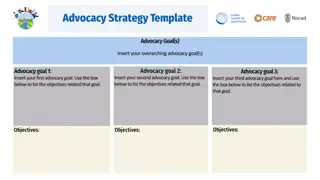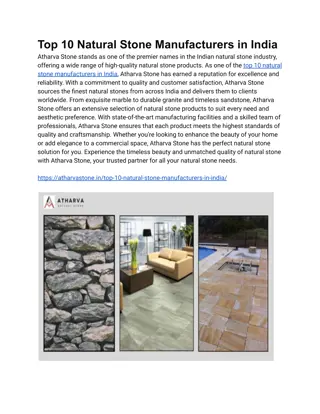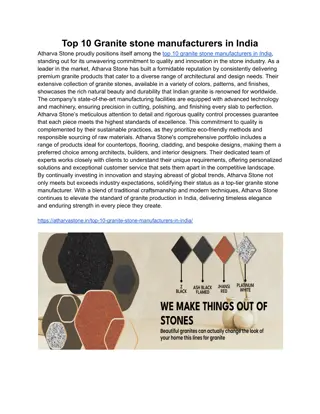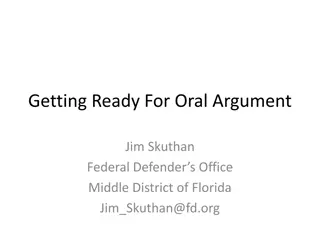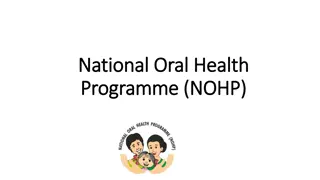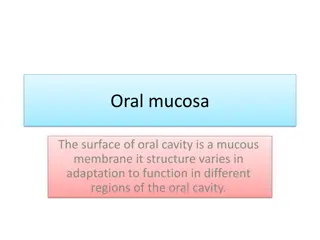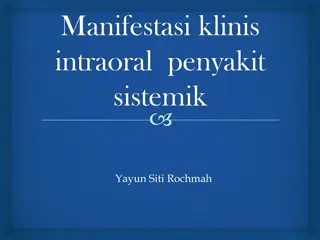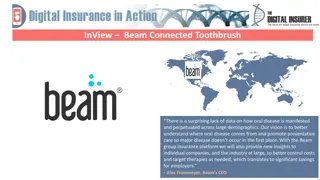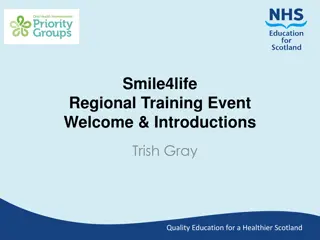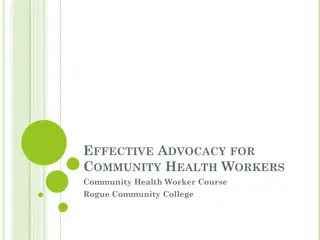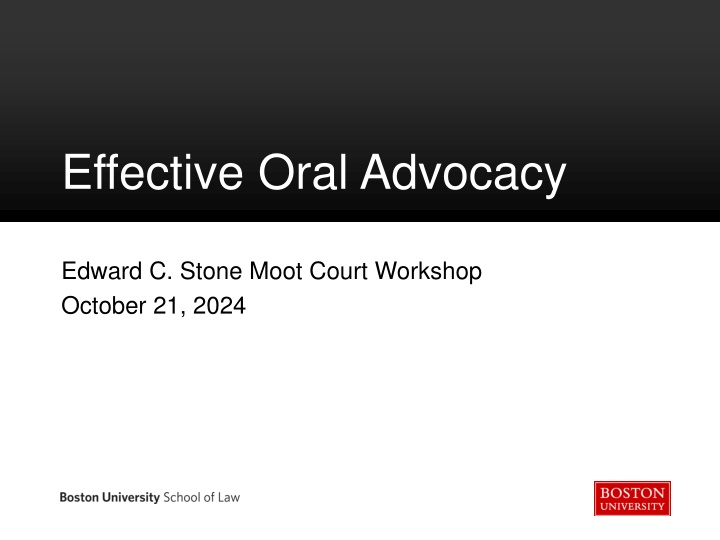
Mastering Effective Oral Advocacy: Tips and Strategies for Successful Presentation
Enhance your oral advocacy skills with these invaluable tips on preparation, structure, and presentation techniques. Learn how to engage with your audience effectively and improve the clarity and strength of your arguments. Get ready to excel in moot court competitions and real-life legal settings.
Download Presentation

Please find below an Image/Link to download the presentation.
The content on the website is provided AS IS for your information and personal use only. It may not be sold, licensed, or shared on other websites without obtaining consent from the author. If you encounter any issues during the download, it is possible that the publisher has removed the file from their server.
You are allowed to download the files provided on this website for personal or commercial use, subject to the condition that they are used lawfully. All files are the property of their respective owners.
The content on the website is provided AS IS for your information and personal use only. It may not be sold, licensed, or shared on other websites without obtaining consent from the author.
E N D
Presentation Transcript
Effective Oral Advocacy Edward C. Stone Moot Court Workshop October 21, 2024
Effective Oral Advocacy Introduction to Oral Argument Boston University Slideshow Title Goes Here 1.How to prepare 2.Mechanics 3.Conduct 4.Feedback
Effective Oral Advocacy How to Prepare The Basics Boston University Slideshow Title Goes Here Read and brief cases from both sides Prepare responses to common questions, especially weaknesses Write out your introduction and conclusion and memorize them
Effective Oral Advocacy How to Prepare Know your Case Boston University Slideshow Title Goes Here Record and facts Standard of review Key cases Apply the law to YOUR case
Effective Oral Advocacy How to Prepare Structure Boston University Slideshow Title Goes Here Start with a summary or a story Structure your argument Back up each point
Effective Oral Advocacy How to Prepare Believe It! Boston University Slideshow Title Goes Here Be confident Speak clearly Look at the judges Move in an intentional way Note: You are NOT scored on courtroom demeanor or presentation, but distractions can still detract from the clarity of your presentation and the strength of your answers to questions.
Effective Oral Advocacy The Best Way to Prepare? Boston University Slideshow Title Goes Here PRACTICE! Substance facts and cases Hypotheticals Distractions Ask for help Come to a weekly group practice session
Effective Oral Advocacy Differences from the Brief Boston University Slideshow Title Goes Here You can go beyond what s in your brief! Different structure? Respondent teams Respond! Focus more on C - - AC (and less on RE) Go with the flow of questions, but Use clear transitions to get back on track
Effective Oral Advocacy Mechanics The Basics Boston University Slideshow Title Goes Here Each side: 30 minutes Each speaker: 15 minutes Rebuttal (for Appellants/Petitioner): Up to 2 minutes Remaining time divided evenly
Effective Oral Advocacy Mechanics Setting Up Boston University Slideshow Title Goes Here Arrive early, check in (6th floor jury room), head to courtroom Appellant on left, Appellee on right, as you face the bench All rise, judges enter, all sit STAND UP when the clerk asks if ready and say YES
Effective Oral Advocacy Mechanics First Speaker Boston University Slideshow Title Goes Here Clerk: Appellant, commence your argument. First speaker for Appellant stands up, walks to the podium, and begins
Effective Oral Advocacy Mechanics First Speaker Boston University Slideshow Title Goes Here May it please the court Introduce yourself and partner Explain what each of you will show Briefly state your partner s issue Give your issue in the form of your brief answer
Effective Oral Advocacy Mechanics The Beginning Boston University Slideshow Title Goes Here Briefly outline your main points Tell the court what you want them to do (affirm, reverse) Begin your argument
Effective Oral Advocacy Mechanics Facts? Boston University Slideshow Title Goes Here First Appellant speaker: May ask court if it wants a brief recitation of the facts Appellee speakers: Mention facts only if the Appellant speaker for your issues discusses and misstates
Effective Oral Advocacy Mechanics Second Speaker Boston University Slideshow Title Goes Here First speaker finishes, says thank you, and sits Second speaker walks to podium, awaits signal from clerk and judges that they are ready (you may also ask if you can proceed) Second speaker begins Introduce just yourself Explain what you will show (your brief answer) Start argument (using the same introduction techniques)
Effective Oral Advocacy Mechanics Concluding Boston University Slideshow Title Goes Here Confidence! Last chance to make a splash Write out one or two sentences summarizing argument and . . . Memorize!
Effective Oral Advocacy Mechanics If Time Remains Boston University Slideshow Title Goes Here Pay attention to time Once the clerk displays 1 minute remaining, try to wrap up your argument/answer Move to your memorized conclusion Thank the judges Sit
Effective Oral Advocacy Mechanics If Time Runs Out Boston University Slideshow Title Goes Here Stop talking Acknowledge Thank the judges and mute Middle of answering? Acknowledge, ask if you may finish, briefly finish
Effective Oral Advocacy Mechanics Rebuttal Boston University Slideshow Title Goes Here Only Appellants Only one team member May quietly confer with teammate via notes ONLY for things that demand response Waive it if you do not need it
Effective Oral Advocacy Conduct Judicial Deference Boston University Slideshow Title Goes Here Avoid interrupting Avoid showing frustration Listen carefully Take 3 seconds and think Look at the judges
Effective Oral Advocacy Conduct Judicial Deference Boston University Slideshow Title Goes Here Listen to the question carefully Disagree respectfully Accept hypotheticals Know when to concede Tip: Google your judges!
Effective Oral Advocacy Conduct General Boston University Slideshow Title Goes Here Minimal, intentional hand gestures Be comfortable, but focused Do not use I or we Avoid causing distractions during someone else s argument Remember that these are recorded
Effective Oral Advocacy Following the Round Feedback Boston University Slideshow Title Goes Here Clerk will announce that the argument has concluded Remember that the recording may still be running! Judges leave to confer (briefly) Feedback from the bench Get feedback and ask questions Request/give contact info
Effective Oral Advocacy Feedback for Us! Boston University Slideshow Title Goes Here Brief survey following your argument Feedback on format Feedback on judges Feedback on anything! Review Judge Guidelines
Effective Oral Advocacy Open Practice Sessions Boston University Slideshow Title Goes Here Schell Courtroom (602): October 23 (Wednesday) from 1-2:30pm November 1 (Friday) from 1:10-2:30pm November 8 (Friday) from 1:10-2:30pm Open to all but priority time goes to students scheduled the following week Can ask questions (non-substantive!) or practice discrete pieces of argument (e.g., opening)

